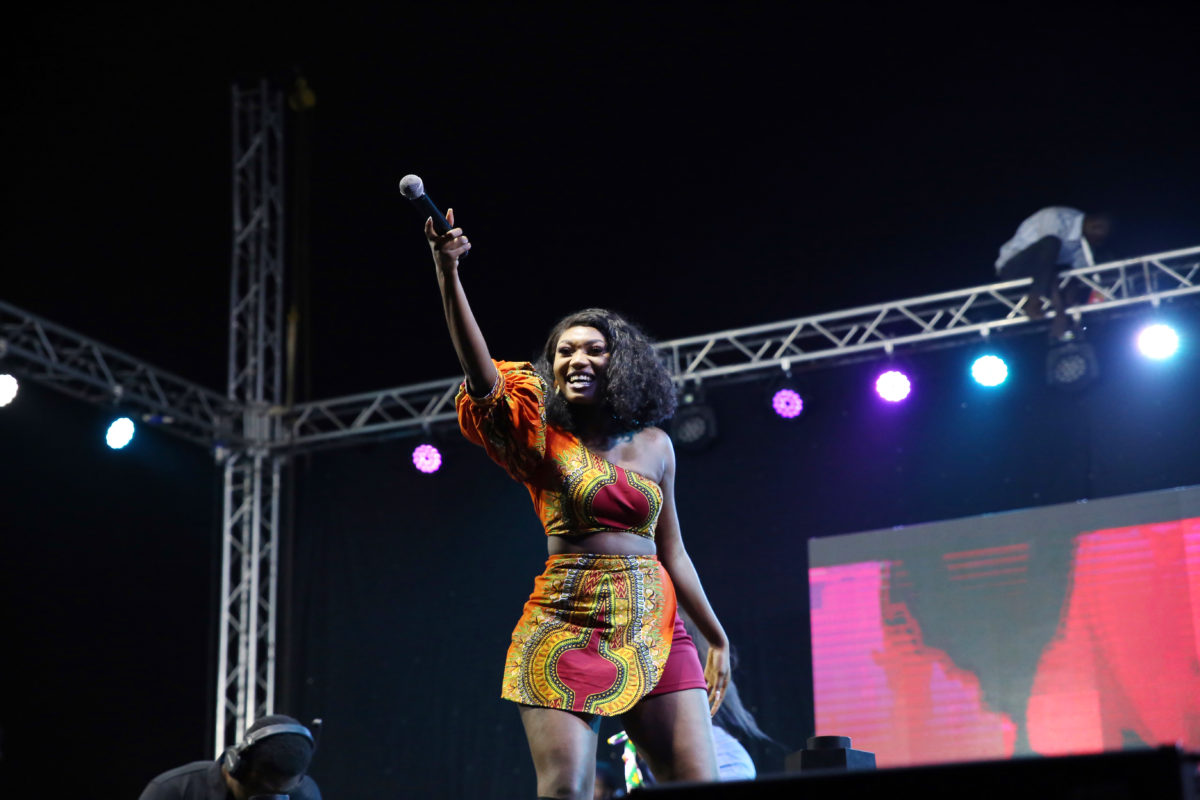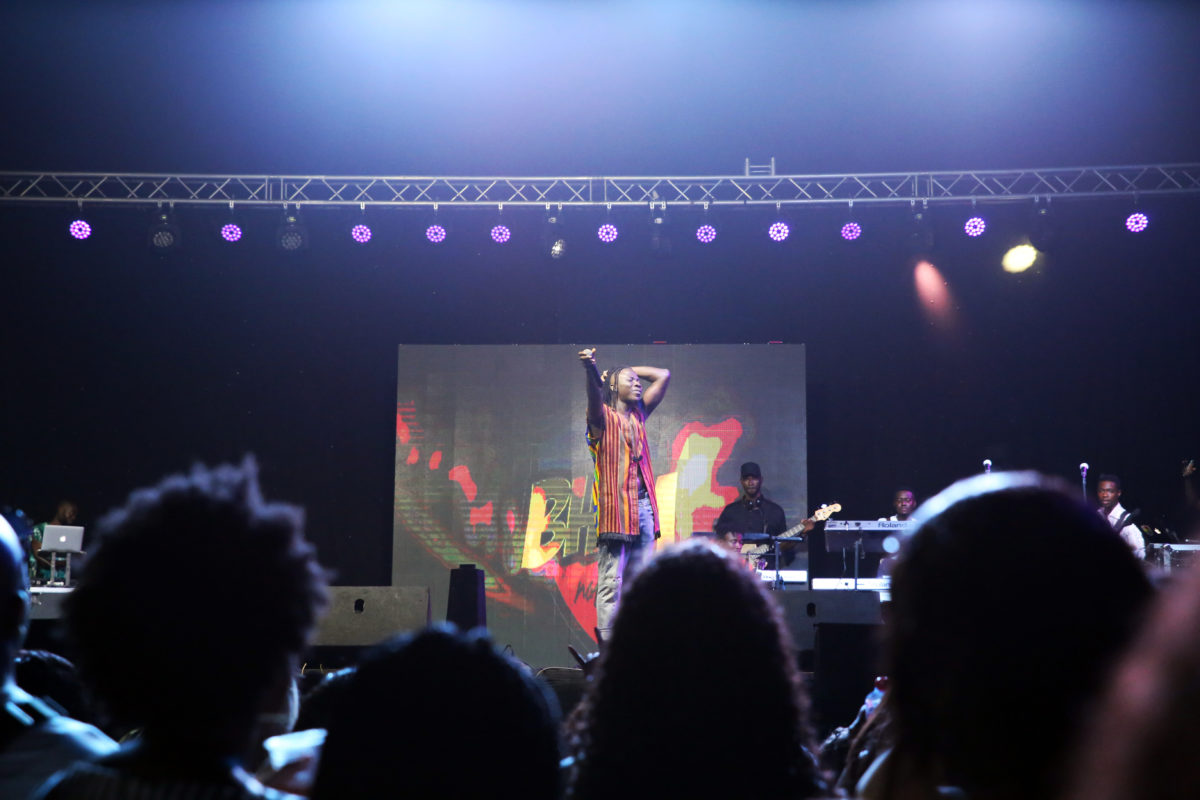In the days following Christmas, Accra is bursting at the seams with natives returning home to family for the holidays, foreigners rekindling their diasporic ties to the continent, and those simply curious to see what the magic of the West African city looks like up close. Afrochella, a new culture festival sandwiched in between Christmas and New Year’s Eve, wants to welcome them all.
The harmattan heat is thick in the air in the middle of Accra’s El Wak Stadium, where the second annual Afrochella—the brainchild of Abdul Karim Abdullah and his Ghanaian business partners—is taking place. A little over 9,000 people, nearly 5,000 more than at the fest’s inaugural run in 2017, mill around the compound. Outside of Africa, these multi-shaded guests have flocked from countries including the U.K., Sweden, Denmark, France, Spain, Switzerland, Australia, Japan, Singapore, Russia, Germany, and all across the Americas.
While some of them fork through cartons of traditional jollof rice and kelewele (spicy fried plantains), others get their faces decorated with elaborate paint patterns. Attendees spread out to watch two acrobats flip and tumble to the sound of a drum circle, or stand closer to the stage, tossing their bodies to the Afrobeats pouring from the speakers. But everyone gets a 360º view of a vast and rich, and distinctly African, culture.
Abdullah makes it clear that Afrochella’s headliners—2018’s top acts included Stonebwoy, Kwesi Arthur, King Promise, and Daddy Lumba—will always be African, no matter what global pop star may be in demand at the time. “We wanted a space for people who were in tune with the Afrobeats culture, the popular culture, and urban culture that was shaping the new Africa story,” Abdullah says, also acknowledging the presence of established local fests like the artfocused Chale Wote.
Make no mistake, despite the obvious similarities to its California namesake, Afrochella occupies its own unique lane. “[Coachella is] more of a music festival, and with us, we’re more of a culture festival,” Abdullah says. “When you come to us, you’ll be able to buy African food, see African culture, listen to African music, and I think that is our goal.”








